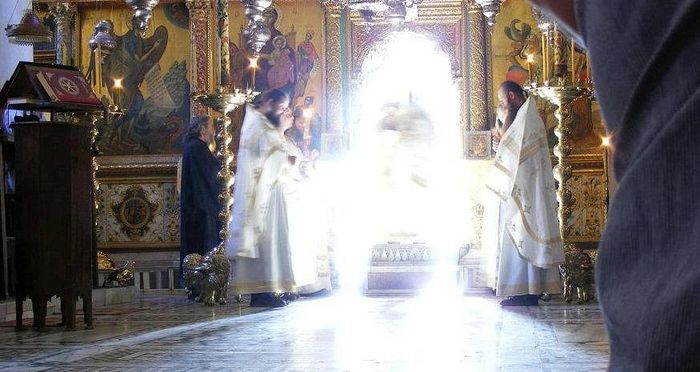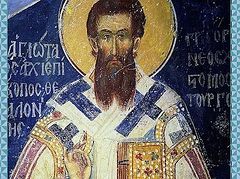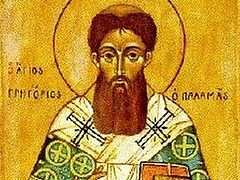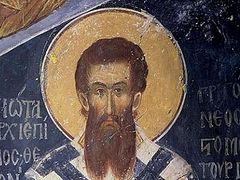Source: Notes on Arab Orthodoxy
March 27, 2016
God's grace is uncreated.
"By Grace you are saved" (Ephesians 2:8).
Salvation from evil, from sin and from death were achieved on the cross and appeared through Christ's resurrection from the dead and His sending the grace of the Holy Spirit on Pentecost. This is what we receive first in baptism, and then in our receiving Christ's body risen from the dead.
Saint Gregory Palamas, whom we celebrate today, said that the divine grace that sanctifies us is God's eternal, uncreated light and distinguished between God's essence, in which man cannot participate, and the uncreated divine energies, in which we do participate.
Here, beloved, we must note that man is not made perfect by his own power, by his human capacities. He is in need of God's support and of His divine power. Here is an important indicator of the great struggle waged by our Saint Gregory Palamas in his claim insistence that this divine power that we receive from God by grace is uncreated. That is, the power is not human. It surpasses humanity and perfects it.
It is true that man must participate, must be a partner, in the work of salvation. He must work, participate and strive to combat his lusts and passions. This is what Orthodox patristic tradition affirms in the dogma of synergy "God works and I work." However, total and complete healing of man's infirmities is only achieved by God's power, which surpasses humankind.
The Protestants will say that salvation is achieved through faith in Christ, relying on Ephesians 2:8-9 [" For by grace you have been saved through faith, and that not of yourselves; it is the gift of God, not of works, lest anyone should boast."]
However, Saint Clement of Alexandria stresses man's struggle through his "fasting" works, his refraining from the passions, in order to tie salvation to works.
Saint Gregory Palamas says that intellectual knowledge is not independent of purity, of our liberation from the passions. Our true knowledge, divine illumination, does not come from studies, but from purity: purity of body, mind and spirit.
We receive this teaching, which is fundamental to our life and its illumination with God's light, on this second Sunday of the fast. It helps us to increase in purity through the way of repentance and to become more liberated from our lusts, so that we may find ourselves ready to receive the light of the resurrection of Christ our Savior.




